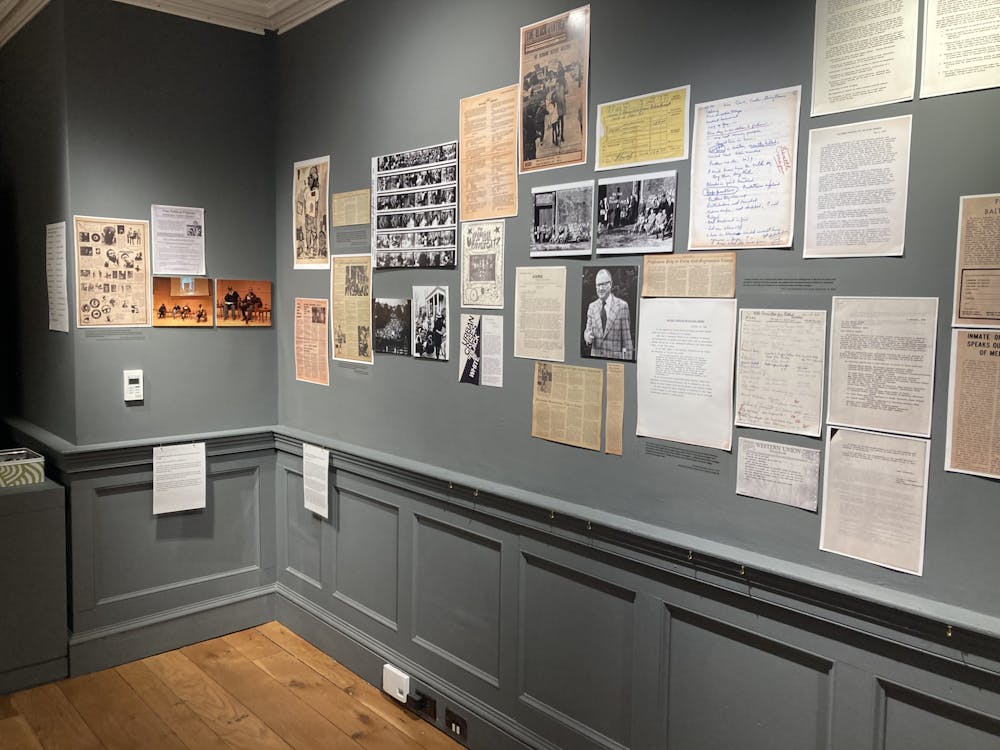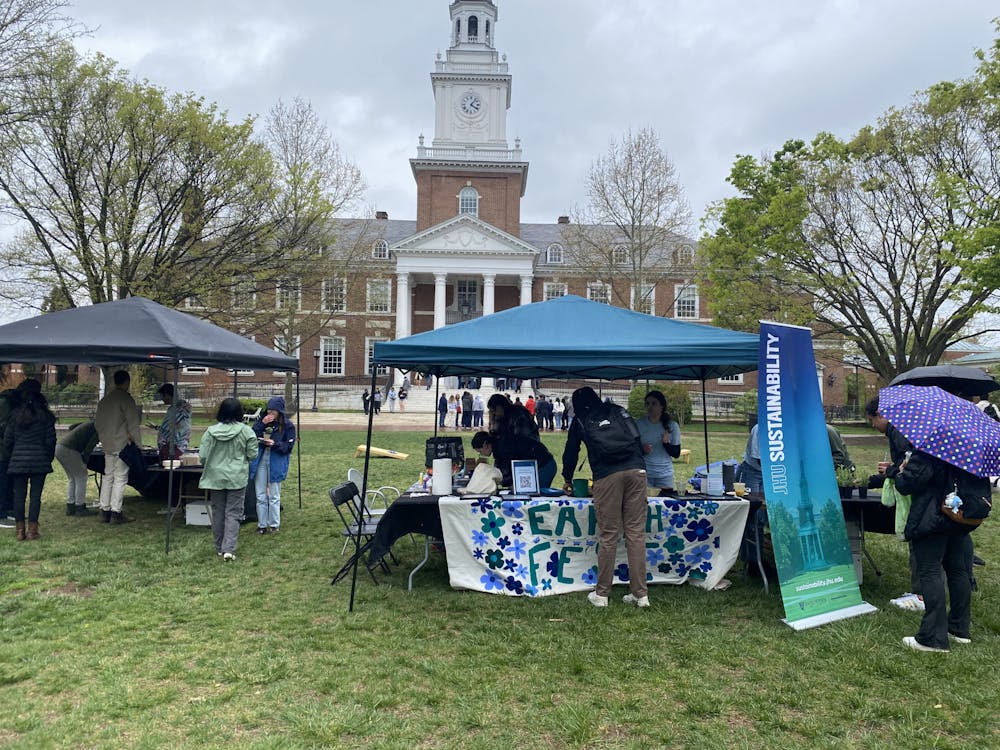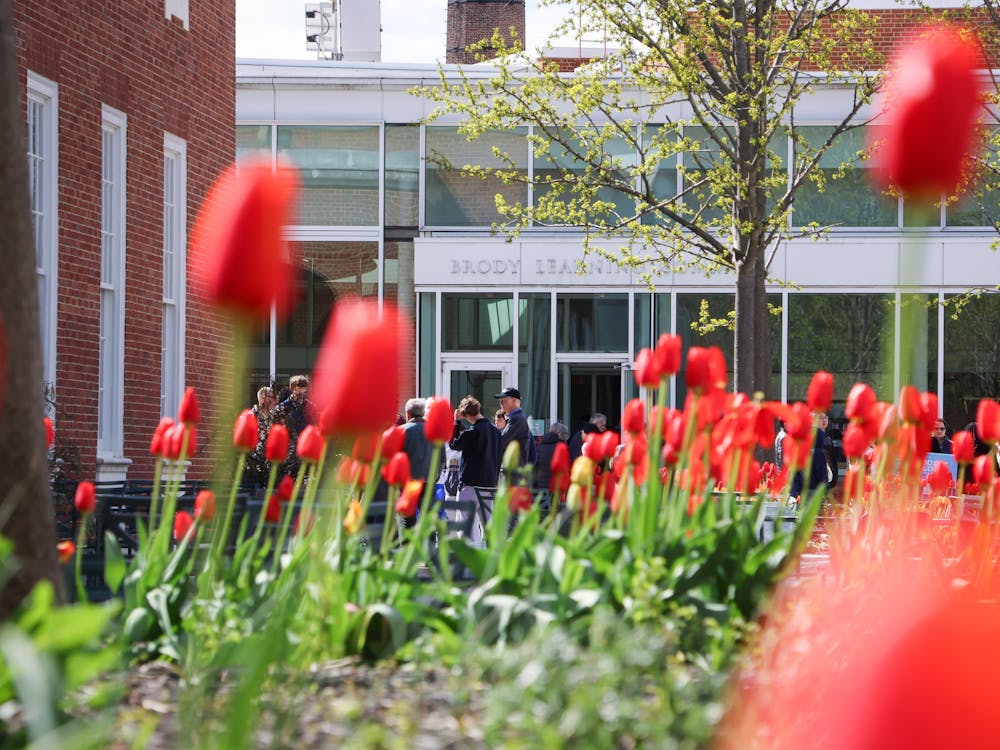Aaron Henkin and Wendel Patrick, the producers of the WYPR show Out of the Blocks, spoke about the process of creating a podcast and the importance of local storytelling in the Mattin Center on Jan. 23.
Their show highlights the people who live on various blocks in Baltimore through interviews and originally composed music.
Henkin describes Out of the Blocks as a unique experience in listening and interpreting others’ stories.
“It is an excuse to talk to strangers, a commitment to the belief that everybody’s got a story worth telling and it is a license to listen,” Henkin said. “It’s also an experiment to radical empathy, and we like to hope that in its best moments it comes close to being a fulfillment of radio and audio’s potential for intimacy.”
For each episode of the series, Henkin interviews between 25 and 30 people from the same block for an hour each and pieces a few minutes of each interview together to form a condensed portrait of each block.
“We’ve realized that each person on the block is like a tile on a mosaic [and] each block of our series becomes a tile on the mosaic of the city itself,” Henkin said.
Episodes highlight blocks in neighborhoods from all over the city, ranging from West Baltimore to Station North to Waverly. They aim to gather stories from diverse individuals in order to help listeners better understand Baltimore.
“The story of Baltimore is in the juxtaposition of all of us together, all at once. If any one of us were able to fathom that, it would be a crazy cosmic epiphany,” he said. “Out of the Blocks is just a hint of that epiphany.”
Patrick, who composes the original accompaniments for the series, demonstrated how he writes his music to enhance the meaning and emotion behind Henkin’s interviews. He uses MIDI data to layer different sounds and tones of various instruments.
“MIDI data is all the data for the sound that you’re hearing. You can follow the rise and fall of the notes,” Patrick said. “Each of these [bars] is an individual note, and if I touch one, you can actually hear it. I try to musically and sonically mirror the interviews that Aaron has captured.”
Patrick also captures specific background noises using his microphone and overlapping those noises with parts of the interview.
“We have all these magical moments that we come across doing the show, and my job is to enhance them using sound and music,” he said.
The producers both stated that they aim to conduct their interviews in areas of the city that are not necessarily well-known but are representative of the city as a whole.
“We both knew the city relatively well, but we try to start with blocks that seem vibrant but that aren’t necessarily blocks that’ve gotten a chance at publicity,” Patrick said.
Henkin described the personal emotional toll that listening to these stories can have but he also stressed how they affect him in a positive way.
“Talking to strangers is a fascinating, beautiful and soul-changing mode of existence,” Henkin said. “For every story that bums me out and sticks in my head, there’s another story that makes me totally humbled by someone else’s resilience or hope. I’m grateful for both of those kinds of stories: the ones that lift me up and the ones that emotionally bury me.”
Junior Vanessa Richards said that while she hadn’t listened to Out of the Blocks she wanted to learn more about perceiving the world through sound.
“I knew that [the show] was something that explored different ways that sound and voice can be used together,” Richards said. “I’ve learned to think about the world differently through sound. It’s interesting to see how other people apply that knowledge to their art and studies.”
Junior Johnnie Johnson added that it was important to consider others’ perspectives.
“It’s easy to get caught up with what you feel like you’re going through and what you’re doing,” she said. “We always see what’s important to us and our world, but it’s hard to see what’s important to someone else.”















Please note All comments are eligible for publication in The News-Letter.